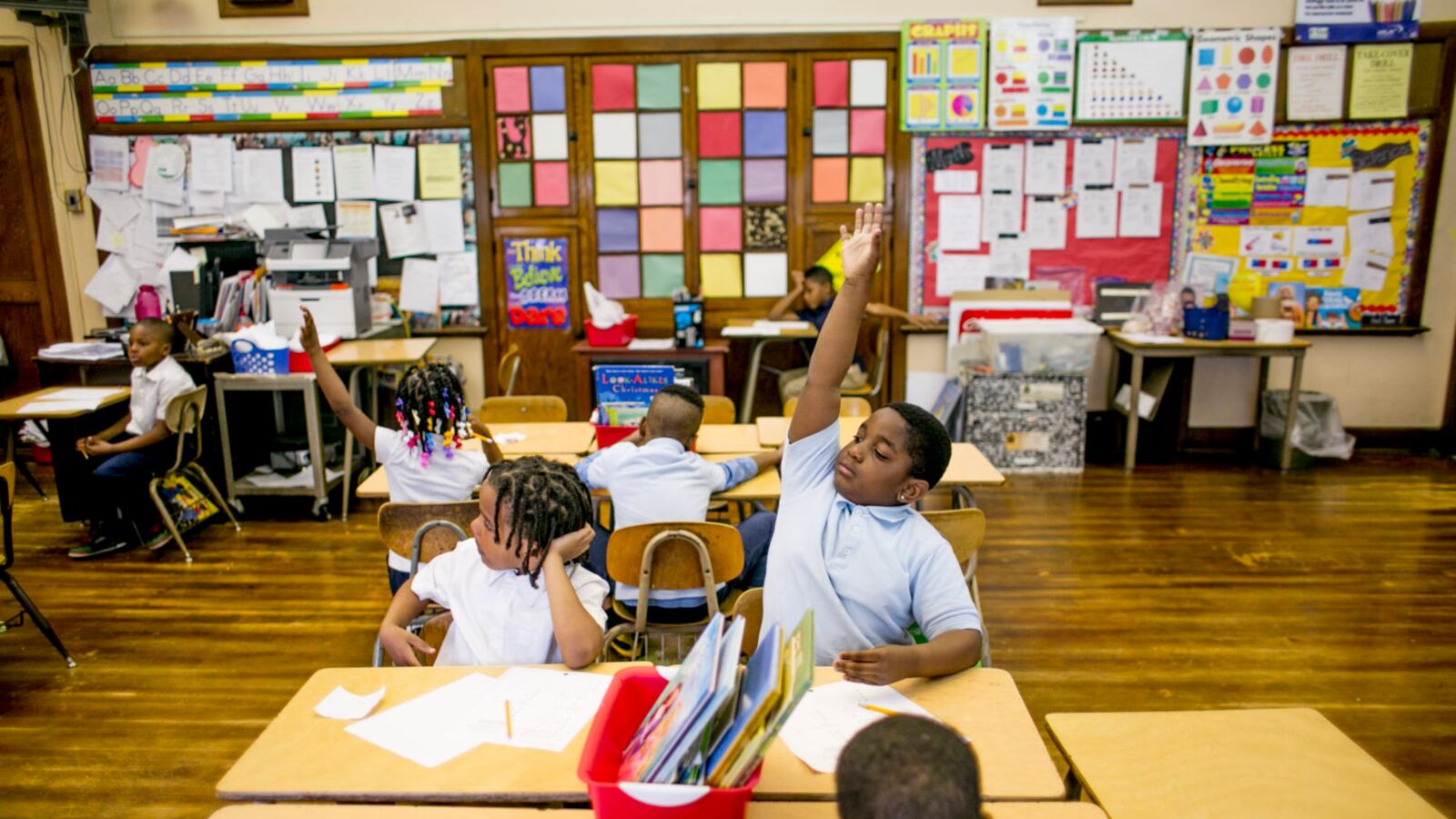It’s a sad, familiar story: Across the country, students continue to have access to vastly different educational opportunities depending on where they live and the color of their skin.
Yet even as the Trump administration curtails programs that help low-income people and people of color, local educators and policymakers are in many cases working to make education more equitable.
That’s what Chalkbeat reporters concluded as a result of our new collaboration with ProPublica. The nonprofit investigative news organization took data from the U.S. Department of Education to build a interactive database that highlights school-level racial disparities in enrollment, discipline, access to Advanced Placement courses, gifted and talented programs, and more.
The database, part of a project called called Miseducation, renders complex data in a transparent and cohesive way, allowing users to compare districts and schools easily. We used the database as a springboard to do what Chalkbeat does best — tell the stories of educational inequity in the communities we cover and call home.
Our stories showcase both the discouraging statistics that describe our communities now, and news about initiatives meant to yield different data points in the future.
We learned that while just one in 10 Detroit students has access to Advanced Placement courses in high school, the district is putting in place a thoughtful plan to get more students enrolled. We learned that Indianapolis schools, where white students are far more likely than black students to be enrolled in gifted programs, recently started assessing all students for giftedness — a best practice that the district is doing not once in students’ careers but twice.
And we learned that in Chicago, three schools in one diverse neighborhood have vastly different access to AP courses. But that doesn’t tell the whole story — some students would rather attend a culinary program — and principals and a newly hired district chief equity officer are grappling with tough questions about what opportunity looks like.
We also found that even as families, educators, and policymakers have their eyes firmly on equity, the path ahead is likely to remain steep.
Unusually high shares of new teachers mean schools in Colorado and Tennessee that serve poor students are perpetually starting from scratch. New York City schools are making a huge investment in counseling services, but it’s unclear whether it will be enough for those most in need.
And murkiness in the very tracking of student data could make it hard to see whether efforts to disrupt the school-to-prison pipeline in places such as Newark are paying off.
Data sheds light on how students are not being given equitable opportunities in schools. It can drive people to act.
These stories, from seven places, help drive that point home.


